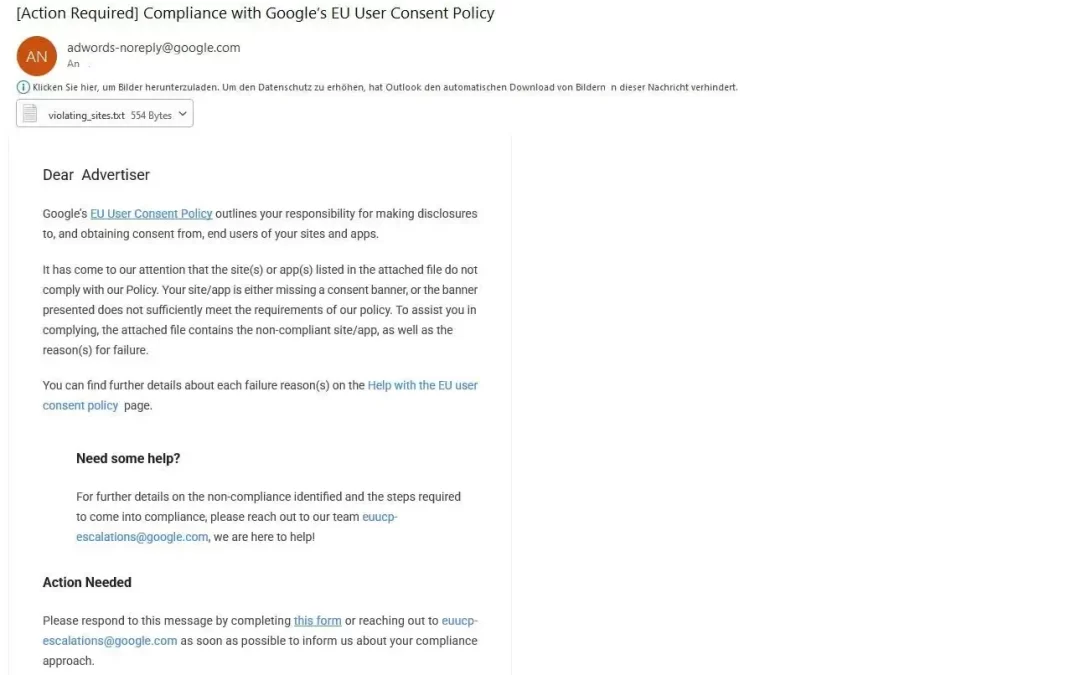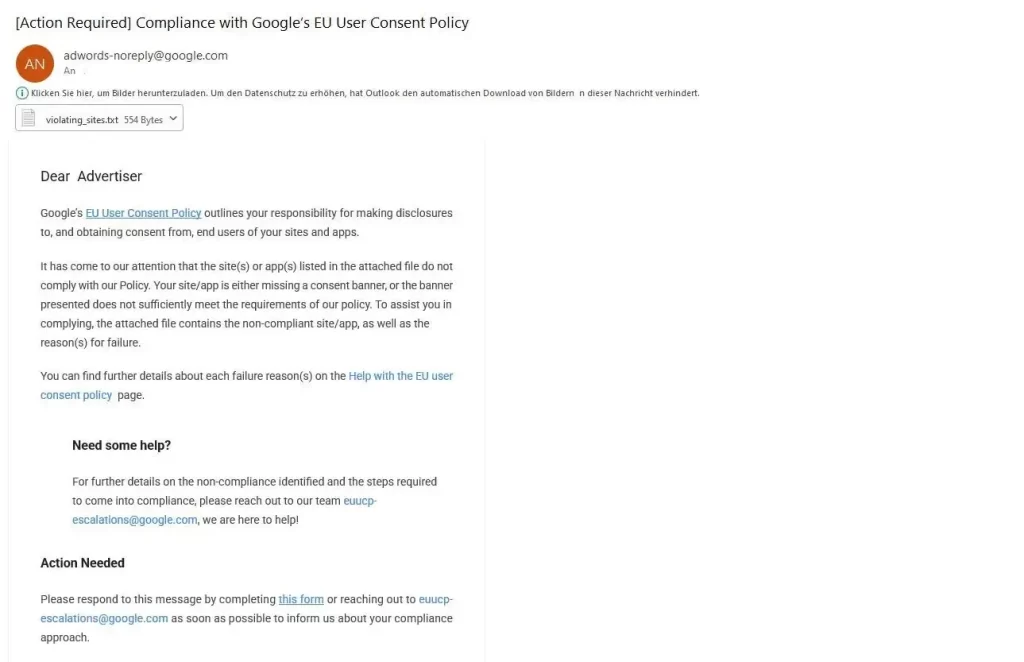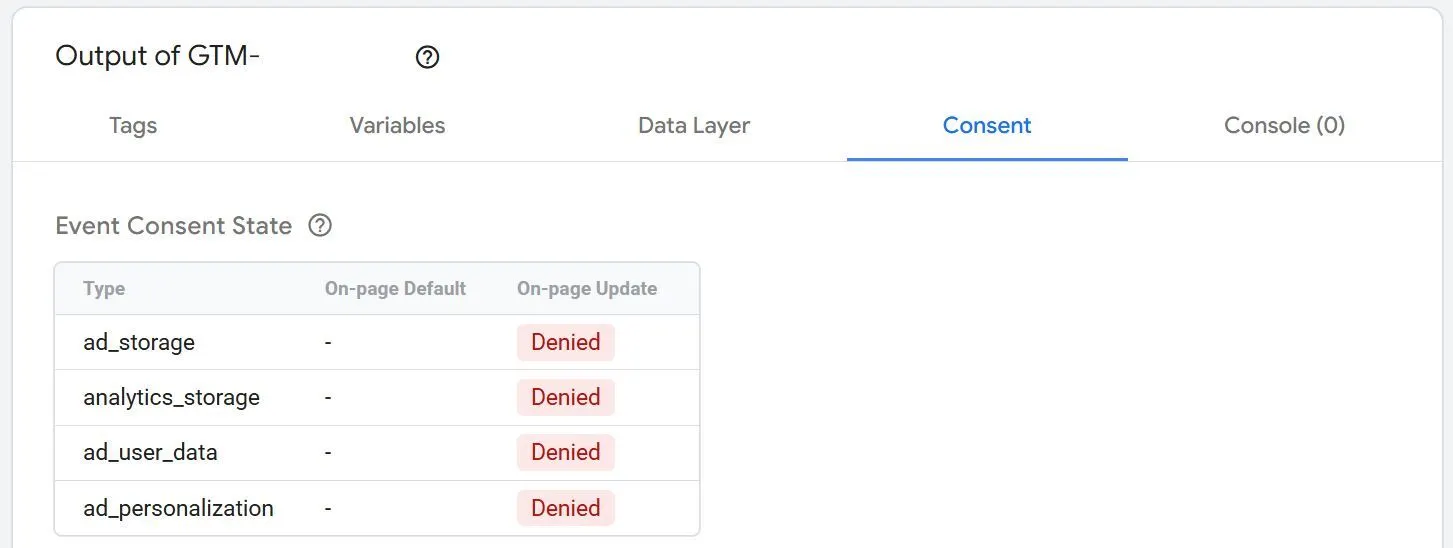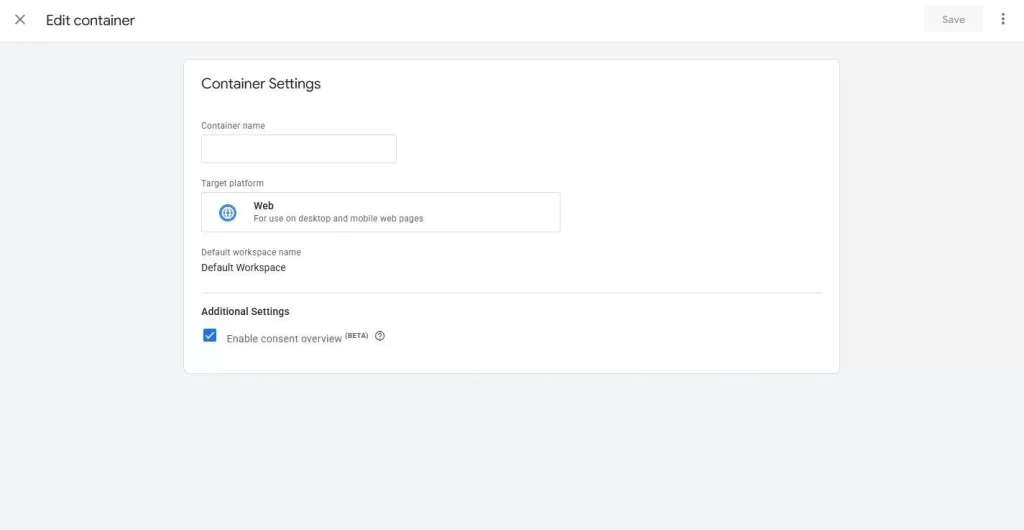Have you received an email from Google about resolving issues with the EU User Consent Policy and aren’t quite sure what you need to do to comply? You’re aware that it concerns the use of cookies and data processing services (DPS) on your website and the collection, sharing, and use of personal data for personalized advertising, but you can’t resolve the issue yourself in a timely manner without the help of an experienced digital agency?
Interested in a free, no-obligation GCM v2 audit?
The team at Kapwa Marketing is happy to assist you if you are currently confused and don’t know or are unable to research the next steps to resolve the above issue. These typically concern the Consent Management Platform (CMP) you use, the transfer of EU user consent data to Google Ads, and Google Consent Mode v2 (GCM v2).
What exactly is Google Consent Mode v2 (GCM v2)?
Google Consent Mode v2 (GCM v2) is an updated and improved version of Google Consent Mode; it enables the transfer of EU user consent data to Google. Compared to the first version, the second version can transfer the ad_user_data and ad_personalization parameters in addition to the analytics_storage and ad_storage parameters.
The implementation of Google Consent Mode v2 is playing an increasingly important role in web tracking as it helps to meet the strict requirements of the EU General Data Protection Regulation (GDPR).
Lawful collection of consent from EU users and transmission of consent data to Google Ads
To obtain legally compliant consent for the use of cookies, data processing services (DPS), and local data storage technologies, the professional use of a Consent Management Platform (CMP) is required. Among the more well-known platforms are Usercentrics, Cookiebot, Borlabs, and Consentmanager.
We deliberately write “professional use of a CMP” because simply inserting the CMP script into the head is not enough. Proper configuration and management of the cookies and data processing services on your website are essential.
Recently, we’ve increasingly been faced with the task of ensuring the legally compliant collection of EU user consent and the correct transfer of this consent data to Google Ads. Often, the configuration of the CMP used is simply inadequate.
But that’s not all: When using a Google Tag Manager container, we often find that numerous tags, triggers, and variables have not been created correctly, and the consent overview is not activated in the container settings.
Such configuration errors inevitably lead to a violation of the obligation to obtain legally valid consent from EU users for the use of cookies and DPS on the website. The result: a serious email from Google demanding that the issue regarding the EU User Consent Policy be resolved as quickly as possible.
Google Consent Mode v2 (GCM v2) for transferring EU user consent data
To resolve your issue with the EU User Consent Policy quickly and effectively, and most importantly, within the deadline set by Google, we will proceed as follows:
- Correctly configure all cookies and data processing services used on your website in your CMP account
- Activation or use of Google Consent Mode v2 (GCM v2) to transfer the EU user consent data collected via the CMP to Google Ads
- Activate the consent overview in your GTM container settings (if Google Tag Manager is used; this is usually the case)
- Revise and optimize the tags, triggers and variables in your GTM container
- Complete review of the setup for the legally effective collection and transfer of EU user consent data to Google Ads, Google Analytics, etc.
When reviewing your setup, we also check whether your CMP implementation complies with GDPR requirements. The three most important points to review in this context are:
- Is all consent data from EU users collected correctly and lawfully?
We take a close look at the CMP you use and the configuration of your CMP account.
- Are the consents given by each user recorded and stored?
- Does each cookie or data processing service explain how the user can withdraw their consent?
Conclusion:
Anyone who wants to effectively operate Google Ads in the EU or use GA4 professionally cannot avoid ensuring that EU user consent data is collected and correctly transferred to Google Ads and/or Google Analytics (GA4). If you have any problems with these tasks, please contact the team at Kapwa Marketing; we will be happy to provide you with expert support at a fixed, binding price.




